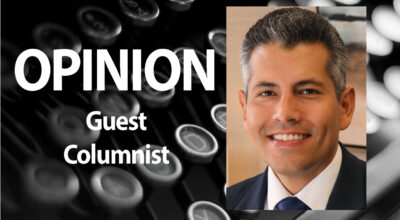Harvard Law Grad with Autism Advocates
Published 7:10 am Wednesday, September 14, 2016
Editorial By Daniel J. Vance MS, LPCC
The Washington D.C.-based Autistic Self Advocacy Network (ASAN) is a nonprofit organization run by and for people on the autism spectrum, seeking, as its website states, to “increase the representation of autistic people across society.”
Its director of public policy is Sam (Samantha) Crane, a Harvard Law School graduate, who said in a telephone interview, “Like many people on the autism spectrum, what I’ve experienced is the general lack of understanding (by others) about the autism spectrum. People have a lot of misconceptions. They often think people with autism lack empathy and don’t experience feelings the same way others do. My experience, and that of others with similar disabilities, made me really passionate about going into advocacy for people with disabilities, especially into disability rights.”
Crane wasn’t officially diagnosed with an autism spectrum disorder until law school, where she would need accommodations through 2009. With ASAN, in part, she has been advocating against certain practices of the Massachusetts-based Judge Rotenberg Center (JRC), a day and residential school, which uses electric shocks to the skin to treat some autistic students engaged in self-injurious behavior. She said a psychologist there years ago began treating clients with significant disabilities using what he called “aversives.” For example, Crane said, “He started out by making clients smell ammonia or hitting them with a ruler when they did something he was training them not to do. Eventually, he invented a device that applied electric shocks to the skin when a person did a behavior (the psychologist) decided wasn’t acceptable.”
Crane was “horrified” because JRC had marketed the treatment, she said, “as the only option for very severe behaviors of adults and for people who were self-injuring. Both of those are not true. (JRC) has a history of shocking someone for something as minor as getting up when they aren’t supposed to. Sometimes they will be shocked for having their muscles tense up (from anticipating another shock). People have been shocked for acting startled or for yelling when they see someone else shocked.” She claimed she knew all this from former employee reports and from hearing from people that had been shocked.
Crane said her organization overall was trying hard to be present in all public conversations about autism and autism policy in which the voice of people with autism wasn’t being heard. ASAN would like to see the FDA, which regulates medical devices, move quickly to ban this type of treatment.
Facebook: Disabilities by Daniel J. Vance, MS, LPCC [Sponsored by Blue Valley Sod.]





